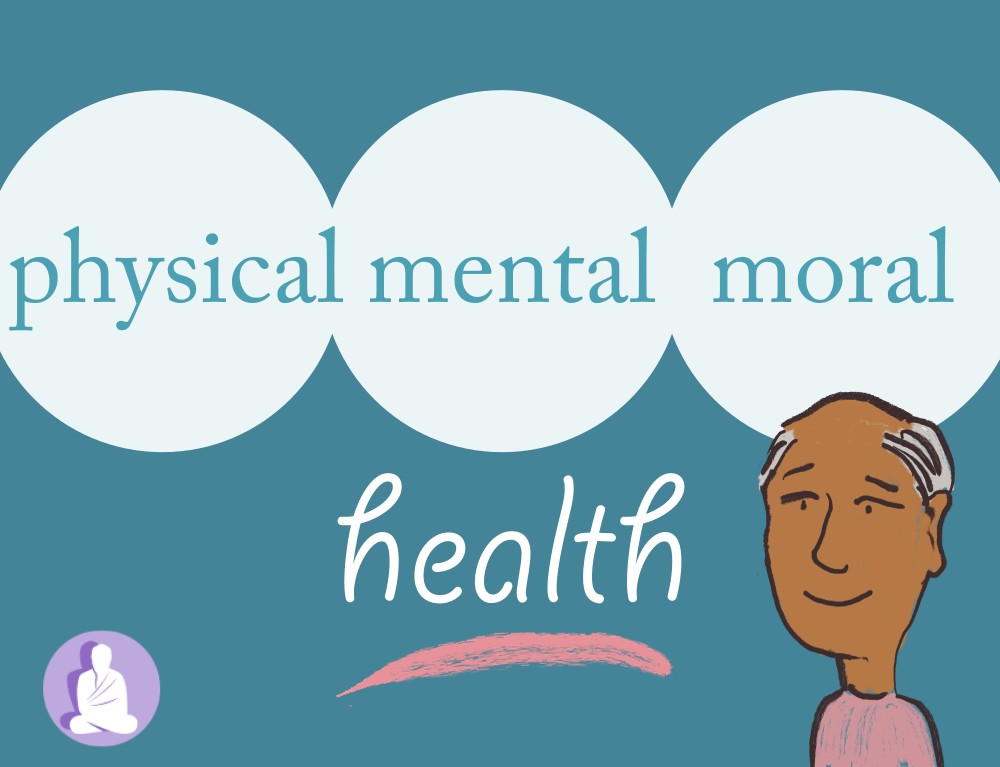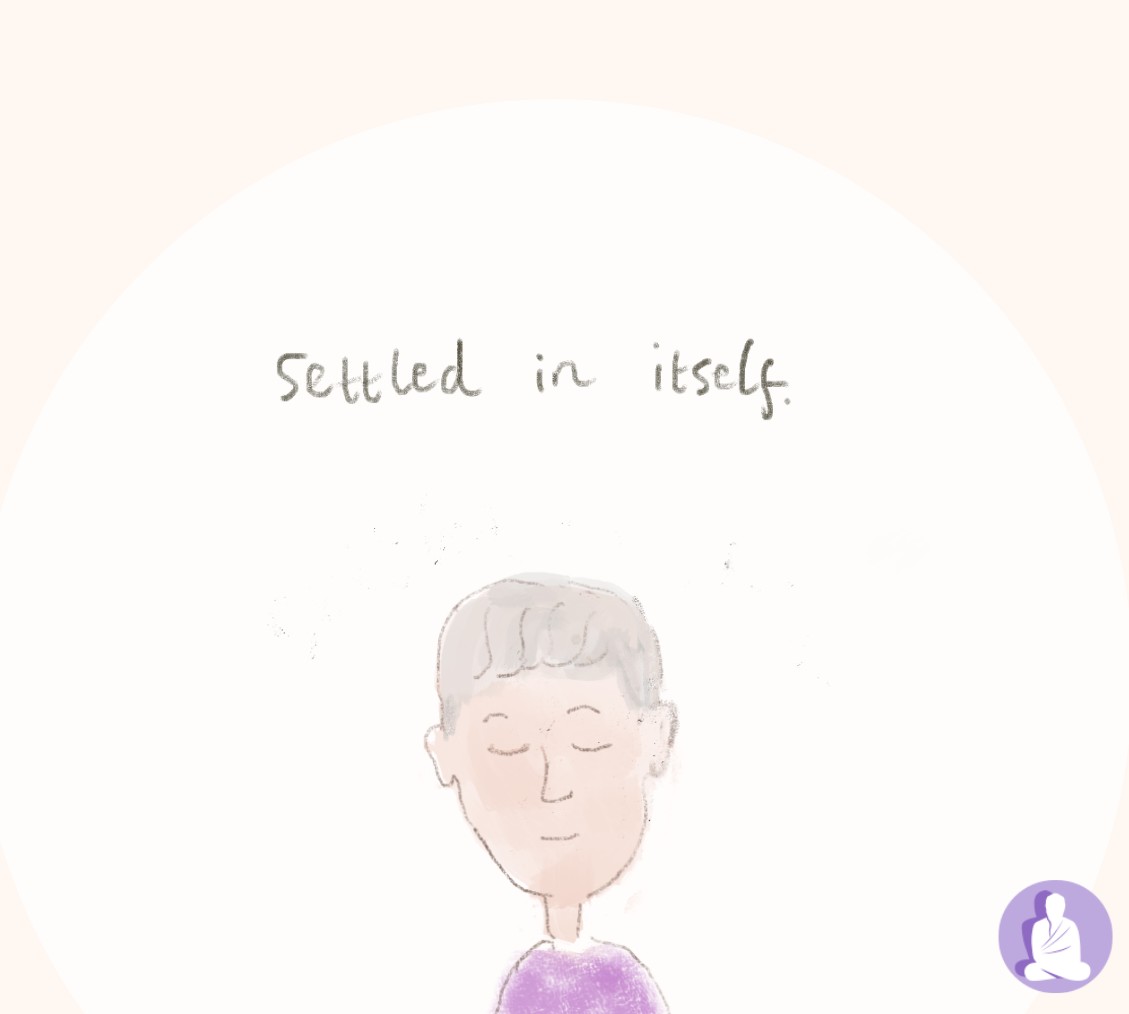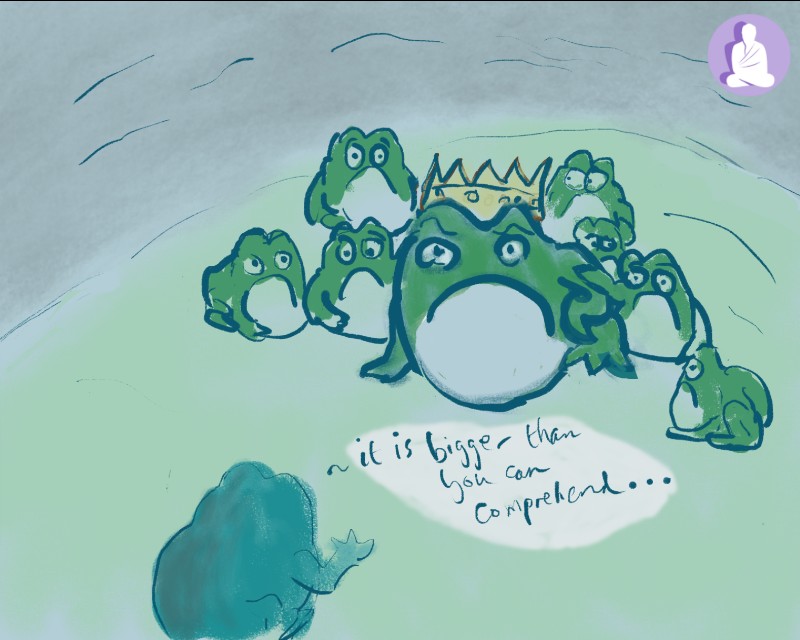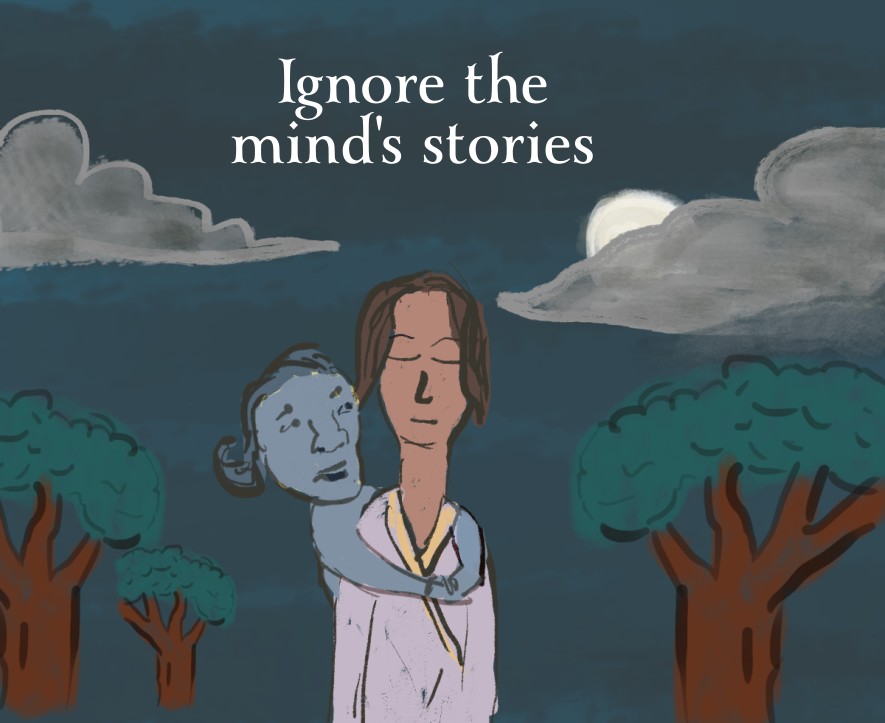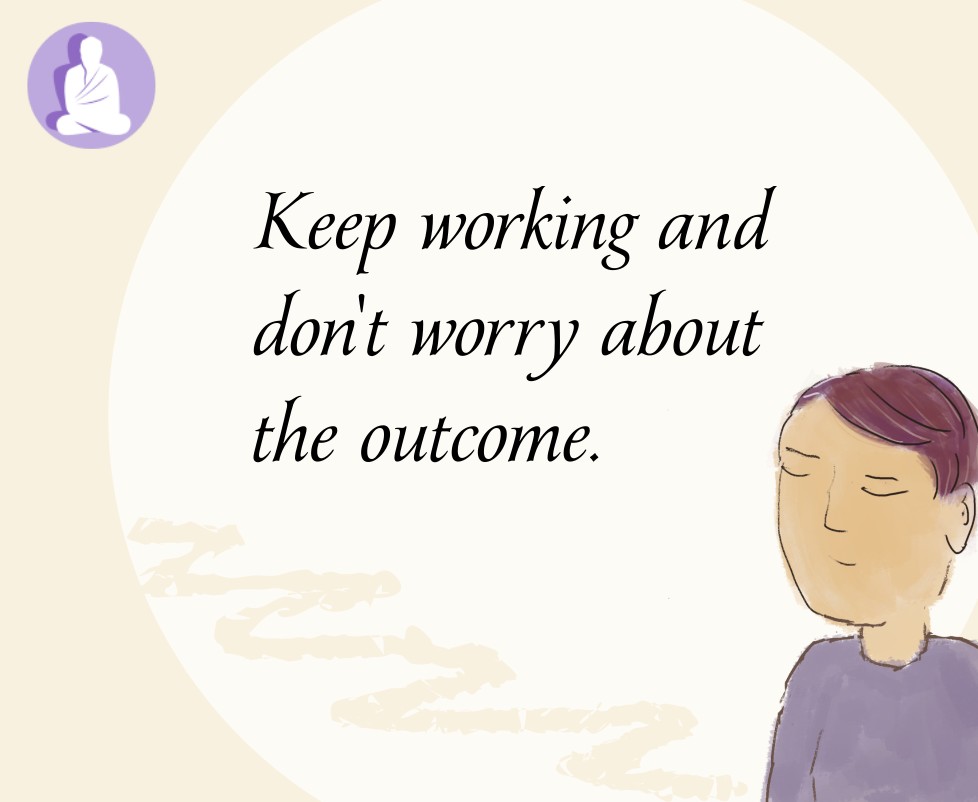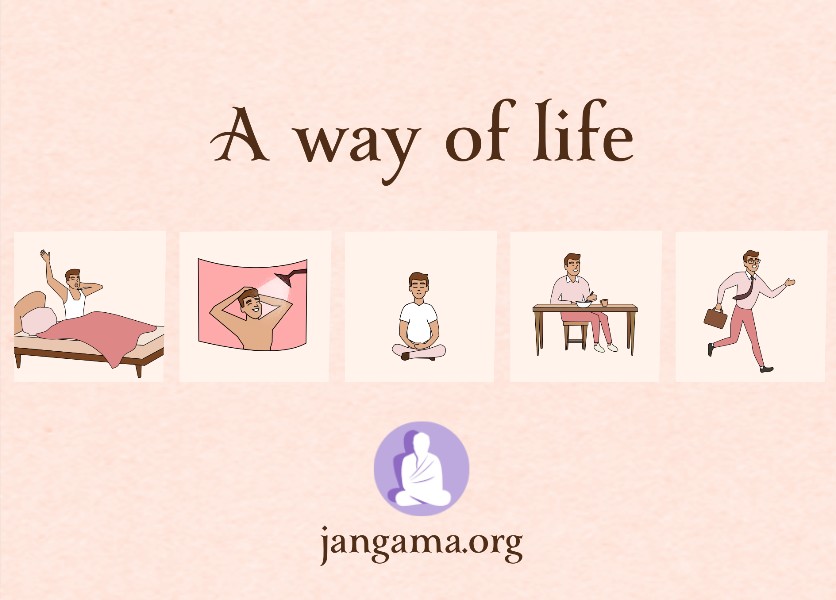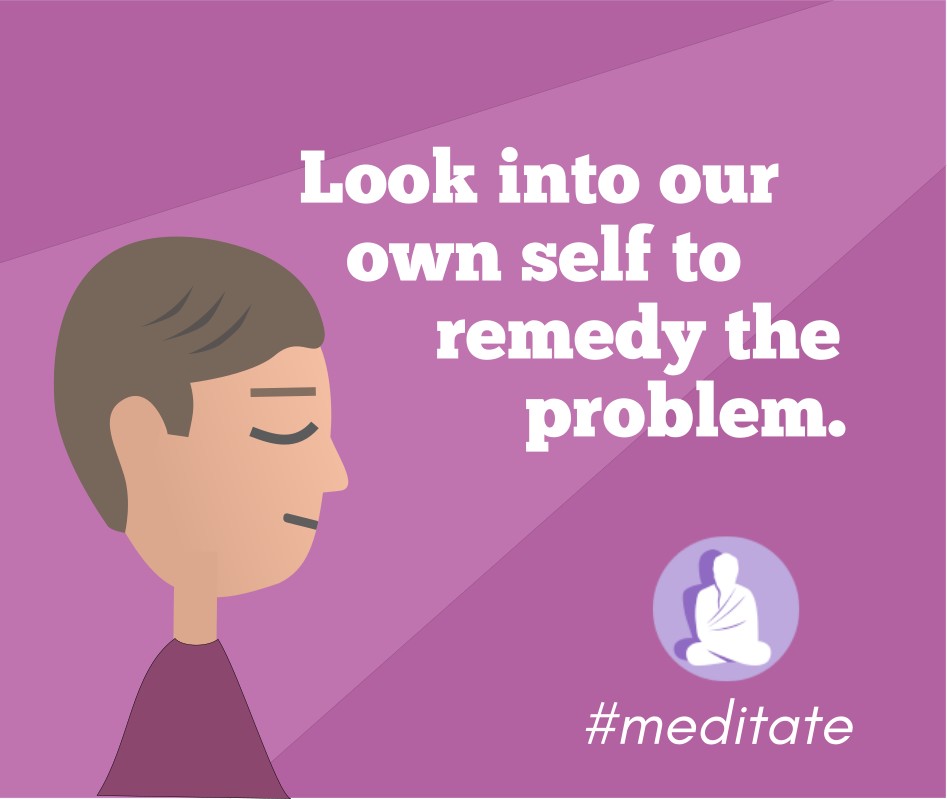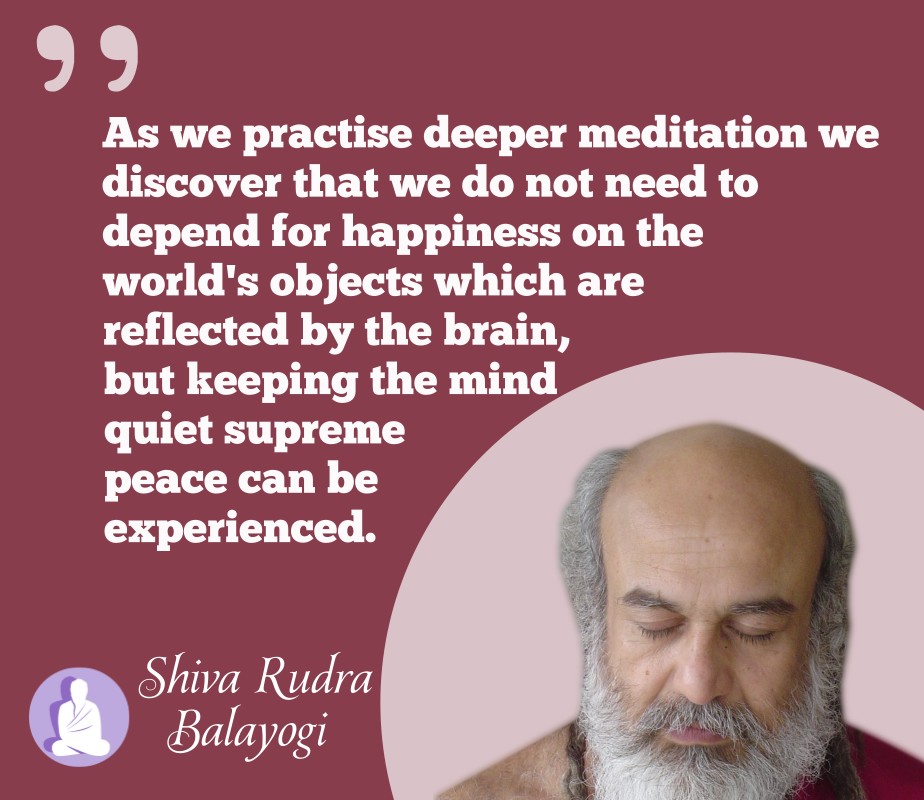There are three responsibilities in life – physical health, mental health and moral health.
We all know the importance of keeping our physical body as healthy as possible. We know we need to eat the right food, do sufficient exercise, etc., otherwise our body can become unhealthy and give us pain and suffering.
Equally as important but often neglected is our mental health. As Babaji says, mental health means being in control of your mind. You should be able to think when you want to think, and when you don’t want to think you should be able to keep the mind quiet.
A lot of the time the mind tends to go into worries and cravings. It becomes weak and easily affected. A strong mind would mean we can maintain our peace and composure even in a difficult situation. If we can restrain ourselves and be mature in how we think and act without thinking negatively then we can say our mind is healthy.
When our mind is healthy, we can exercise the third responsibility, moral health. The word ‘moral’ here simply means consideration for others. We would not like to harm others in what we say or do. We would realise that just like we want to be happy, others would equally want to be happy also. We would not like to disturb that happiness. We would want to make decisions to help a larger group of people, a larger cause, not just for our own selfish needs.
So all these three responsibilities can be fulfilled with a regular meditation practice. As we go on meditating, the mind is purified of its habits to think constantly and go into worries and cravings. It starts to become healthy and we start to regain and maintain that peace within ourselves.

